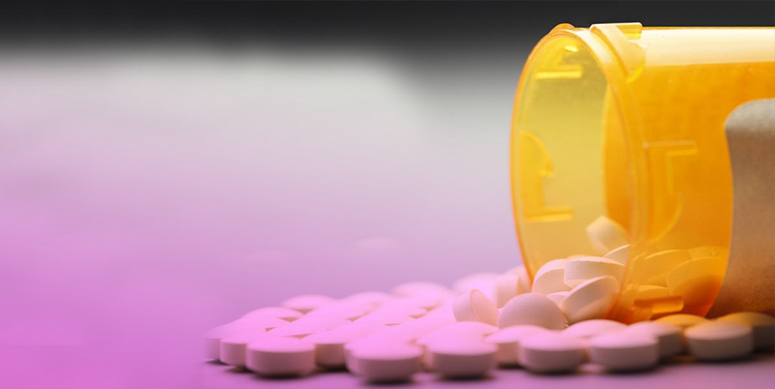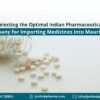According to the Food and Drug Administration (FDA), generic drugs are biologically equivalent to brand name drugs in dosage form, strength, safety, route of administration, quality, performance characteristics, and intended use. Basically, a generic drug is a copycat of a brand name medication (made after the patent from the brand name has ended). They’re likewise typically a more affordable solution.
Generic drugs seem to be getting more and more famous when it comes to significant brand name drugs, including many medications related to heart health like blood pressure and statins medication.
In fact, a record 86% of prescriptions dispensed in 2017 were for generic drugs versus brand-name drugs as per the IQVIA, one of the world’s largest contract research organizations.
Yet, exactly how safe is generic drugs when it comes to staying heart healthy? Let’s take a look at some of the pros and cons of generic medication below.
Pros:
- Cheaper prices. The main reason so many people purchase generic drugs is that they are more cost-effective than brand name drugs. Brand name drugs require research and testing that take a lot of money and time, however, generic drugs only need to copy what as of now exists, saving them the cost and permitting the price to stay low.
- Biologically speaking, generic drugs should satisfy precise guidelines so that the same amount of active ingredient is conveyed to the body simultaneously, and utilized by the body, in the same way as the brand name product.
- FDA approved. The FDA sets severe guidelines and performs research on generic drugs to ensure that they are bioequivalent to the brand name.
- Heart Healthy. As indicated by a recent study, generic heart medications show the same medical outcomes as brand name medications.
Cons:
- Contamination. Generic drugs are frequently produced in factories in countries like China, India, or other areas with cheap labor and overhead. The conditions at these manufacturing plants have sometimes contaminated drugs, leading to recalls in the United States. To be reasonable, however, there have been a handful of situations where even US-based brand name drugs had similar issues although probably not nearly as frequently.
- As per the report by the Government Accountability Office, these foreign factories sometimes escape rigorous FDA inspections, dodge documentation of their practices, and don’t get follow-up monitoring even when genuine manufacturing or drug-handling problems have been recognized. Generally, only one manufacturer produces a brand name drug whereas a couple of manufacturers can produce a generic drug. While the FDA insists on the bioequivalence of the active medication, there sometimes can be unpretentious differences in the delivery system of the drug or non-active “fillers” for the drug. These distinctions rarely result in any clinically significant issue for the patient despite the fact that in rare cases a patient might have a sensitivity or intolerance to an alternate filler or delivery system.
- Mixing up the pills. As brand medications ordinarily have a consistent “branded” look to them that patients can get familiar and comfortable with, generics frequently don’t look as familiar or it isn’t as obvious what each pill seems to be. Moreover, when a prescription is refilled, if the drug is made by a different generic manufacturer and has a different appearance, this can prompt drug confusion and blunders or even patients not taking the pills they are recommended.
- Doctors remain divided. Many medical experts are still divided on the utilization of generic drugs for heart disease, leaving some lingering doubt in this area. Some particular medications including thyroid supplements and blood thinners have had evidence of genuine clinically meaningful issues when switching between brand and generic or between different generics.
More and more frequently patients discover their brand name prescription medication won’t be covered by their insurance plan or their co-pay is higher. Regularly, the insurer will offer a generic version at a co-pay that is less. Luckily, at this point, the vast majority of cardiac medications are accessible in the generic form with commonly no obvious problems for the vast majority of patients.
When patients start on a new medication that is easily available from a generic drug manufacturer, it is usually recommended starting with the generic form if there is no scientific agreement that the brand name version is any better. While usually, the patient will likewise save money directly, we all benefit from the total reduction in health care costs. If a patient has been on a brand medication and can save cash by adopting the generic formulation or even a more affordable brand of the same drug class, it typically should be possible without any ill effects but we believe it ultimately ought to be the patient’s choice after consulting with their physicians. Many patients prefer not to “rock the boat” and not make the switch. While that is not unreasonable, one needs to weigh whether it is worth the additional expense.
If you have any questions or concerns about taking a generic versus a brand-name medication, reach out to us at JoinHub Pharma.
Contact us for more information:
Call : +91 9979382527
Mail us at [email protected]
Website: https://joinhubpharma.com










